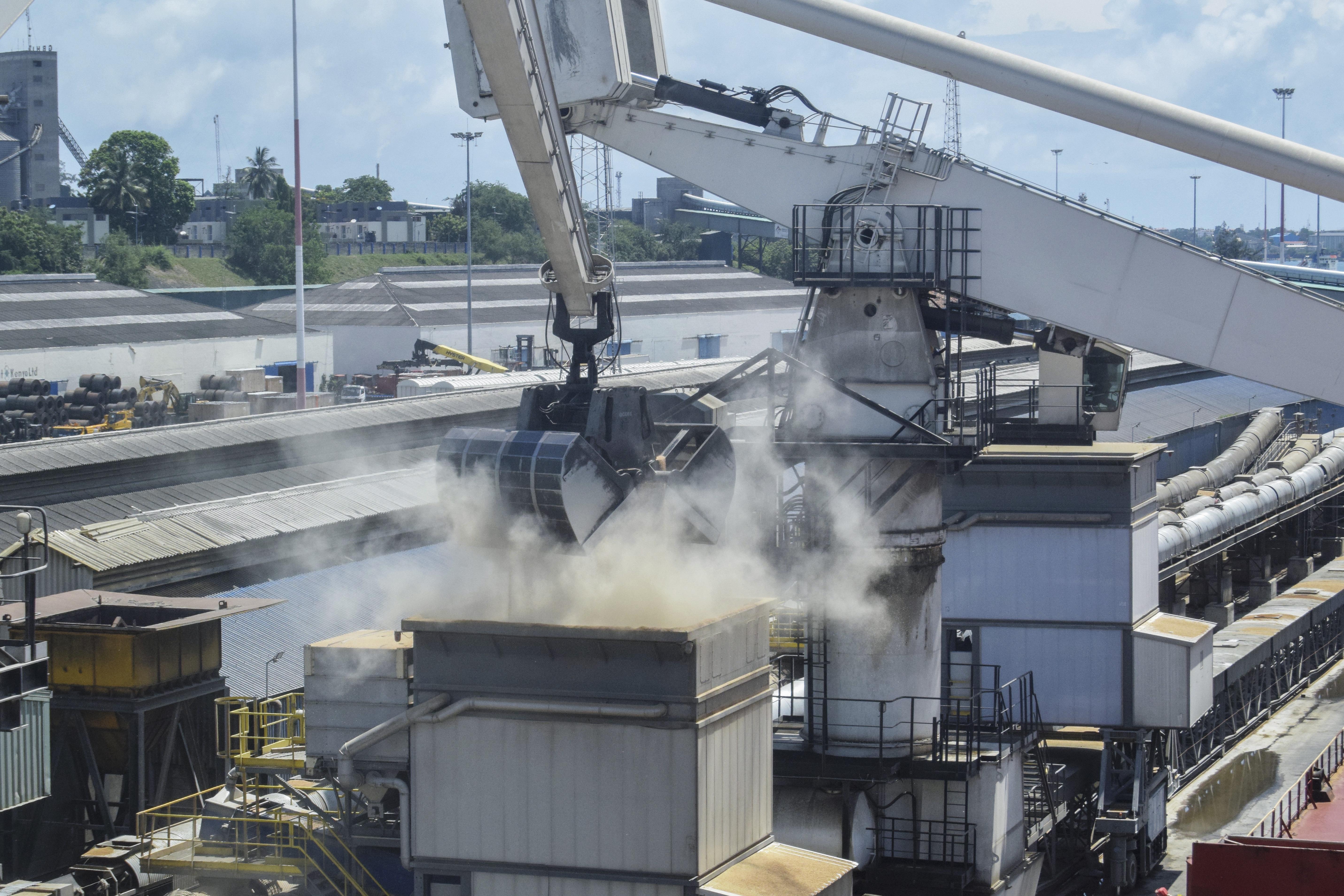 Grain is offloaded from the Eaubonne bulk carrier ship after it docked in the port of Mombasa, Kenya Saturday, November 26, 2022. The vessel arrived with 53,300 tons of wheat for commercial use in Kenya and procured under the Black Sea Grain Initiative, a deal to ease the export of Ukrainian grain and foodstuffs through the Black Sea, according to the honorary consulate of Ukraine in Mombasa. (PHOTO / AP)
Grain is offloaded from the Eaubonne bulk carrier ship after it docked in the port of Mombasa, Kenya Saturday, November 26, 2022. The vessel arrived with 53,300 tons of wheat for commercial use in Kenya and procured under the Black Sea Grain Initiative, a deal to ease the export of Ukrainian grain and foodstuffs through the Black Sea, according to the honorary consulate of Ukraine in Mombasa. (PHOTO / AP)
MOSCOW - Russia confirmed that the grain export deal, formally known as the Black Sea Grain Initiative, has been extended for two months on Wednesday, a day before it expires.
The initial 120-day agreement was extended by another 120 days in November 2022 and then by 60 days in March 2023
"Thus, there is a chance, not in words but in deeds, to help ensure global food security," Russian Foreign Ministry spokesperson Maria Zakharova told a weekly briefing.
ALSO READ: Last ship leaves Ukraine, Black Sea grain deal's fate lies in Russia
"Our fundamental assessment of the 2022 Istanbul agreement has not changed and the discrepancies in its implementation must be corrected as quickly as possible," she said.
In July 2022, Russia and Ukraine separately signed a document in Istanbul with Türkiye and the United Nations on grain and fertilizer exports from Ukraine and Russia to ensure supplies to global markets amid the Ukraine crisis.
The initial 120-day agreement was extended by another 120 days in November 2022 and then by 60 days in March 2023.
ALSO READ: UN humanitarian chief calls for extension of Black Sea grain deal
UN Secretary-General Antonio Guterres hailed as "good news for the world". Turkish President Tayyip Erdogan announced the extension in a televised speech and it was later confirmed by Russia, Ukraine and the United Nations.
Ukraine also welcomed the extension. "We welcome the continuation of the Initiative, but emphasise that it must work effectively," Deputy Prime Minister Oleksandr Kubrakov said on Facebook.
Russia's UN ambassador, Vassily Nebenzia, said the deal was extended because "we still do not lose hope that the problems that we are raising will be sorted out."
READ MORE: UN chief proposes way forward on Black Sea grain deal
UN chief Guterres said outstanding issues remain but that representatives of Russia, Ukraine, Turkey and the United Nations would keep discussing them.
"Looking ahead, we hope that exports of food and fertilizers, including ammonia, from the Russian Federation and Ukraine will be able to reach global supply chains safely and predictably," Guterres said.


